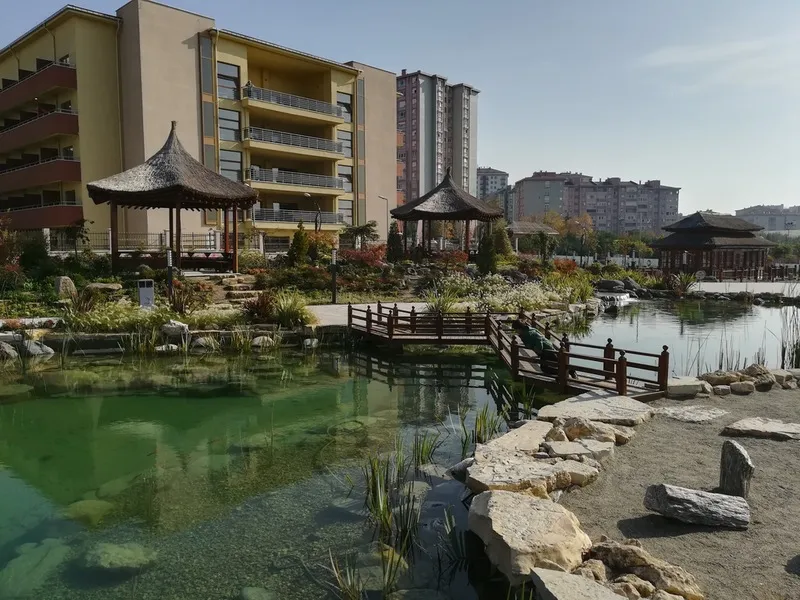
Spiritual Trips in Türkiye: Uniting Faiths and Finding Inner Peace in Ancient Lands
Türkiye is arguably the world's most unique destination for [Spiritual Trips] and [Faith Tourism]. As the geographical and cultural meeting point of three major Abrahamic religions (Islam, Christianity, and Judaism) and the wellspring of Sufi philosophy, the country offers travelers a profound journey through shared and distinct spiritual legacies. A spiritual journey here is characterized by visiting UNESCO sites that have served as mosques, churches, and museums across millennia, finding meditative silence in ancient monastic retreats, and connecting with the profound sense of reverence that permeates Anatolia.
As your professional tourist guide, I confirm that these trips are deeply restorative, whether you seek to trace historical pilgrimage routes, find inner calm through Sufi rituals, or stand where early religious communities gathered. This detailed guide explores the key spiritual hubs, the sacred sites for major faiths, and the unique spiritual experiences that define a journey through Türkiye.
I. The Heart of Sufism and Monotheistic Origins (Central and Southeast Anatolia)
Central and Southeastern Anatolia host some of the oldest and most impactful spiritual sites, challenging our traditional timelines for religion and devotion.
Konya: The Land of Mevlana and Mysticism
[Konya] is the undisputed spiritual heart of Türkiye, serving as the eternal home of [Mevlana Celaleddin Rumi], the great Sufi poet and founder of the Mevlevi Order (Whirling Dervishes).
- The Mevlana Museum: The primary destination is the [Mevlana Museum] (Mevlana Türbesi), where Rumi's green-tiled tomb is housed. Visiting the complex allows you to explore the Matbah (Kitchen) and Çilehane (Isolation Quarters), understanding the practical life of the dervishes.
- The Semâ Ceremony: Experiencing the [Whirling Dervishes Ceremony (Semâ)] is a central spiritual activity. While the main ceremony takes place during the [Seb-i Arus] festival in December, ritual performances occur year-round. This ritual is a profound meditation symbolizing the soul's journey to God.
- Şems-i Tebrizi: Also visit the tomb of [Şems-i Tebrizi], Rumi's mysterious companion and spiritual guide, whose influence was pivotal in Rumi's philosophy.
Şanlıurfa: The City of Prophets
[Şanlıurfa], the "City of Prophets," holds deep significance for Islam and other Abrahamic faiths, particularly through its connection to Abraham.
- Balıklıgöl: The sacred [Balıklıgöl] (Pool of Abraham) is the central pilgrimage site, believed to be the place where King Nimrod cast Abraham into the fire. The tranquil atmosphere and the sacred carp filling the pool create a powerful sense of devotion.
- Göbeklitepe: For those seeking the deepest spiritual origins, [Göbeklitepe] (a UNESCO World Heritage site) stands as the world's oldest known temple (12,000 years old), providing compelling evidence of complex ritual and belief systems long before written history.
II. The Christian Heritage Circuit (The Seven Churches and Monastic Life)
Türkiye's Western and Black Sea regions are crucial for Christian heritage, housing several of the [Seven Churches of Asia Minor] and sites related to early saints.
The Apostolic Route (Aegean and Mediterranean)
A significant pilgrimage route traces the footsteps of the apostles and the early foundations of Christianity:
- The Seven Churches: Explore the ancient cities of [Ephesus], [Sardes] (Manisa), and [Laodicea], all part of the seven churches mentioned in the Book of Revelation. [Ephesus] also hosts the [House of the Virgin Mary] (Meryem Ana Evi), a revered pilgrimage site for Catholics, often included in tours from [İzmir].
- St. Nicholas (Demre): The town of [Demre] (Myra, Antalya) is historically important as the episcopal seat of Saint Nicholas, the original figure behind Santa Claus. The [St. Nicholas Church] is a major destination for Christian pilgrims.
- St. Peter (Antakya): [Hatay] (Antakya) is home to the [St. Pierre Anıt Müzesi] (St. Peter's Church), carved into a mountainside cave and considered one of the earliest Christian churches in history.
Monastic Isolation (Black Sea and East)
Eastern Türkiye offers dramatic examples of isolation and devotion:
- Sümela Manastırı: The incredible [Sümela Monastery] (Trabzon), built into the face of a sheer cliff, is a marvel of both faith and architecture. Its restoration and occasional re-opening for liturgy attract global attention.
- Mor Gabriel Monastery: Located near [Midyat] (Mardin), [Mor Gabriel Monastery] (Dayro d-Mor Gabriel) is the oldest surviving Syriac Orthodox monastery in the world, maintaining its traditions and language for over 1600 years. This region is a living link to the ancient Christian faith.
III. Synagogues and Shared Spiritual Spaces (Istanbul)
[Istanbul] remains the center for Jewish heritage, embodying the country's multi-faith past.
- Sephardic Heritage: The [Neve Shalom Synagogue] and the historic [Ahrida Synagogue] (in the Balat district) are essential sites for tracing the history of the [Sephardic Jews] who flourished in the Ottoman Empire after their expulsion from Spain.
- Ayasofya and Sultanahmet: The [Hagia Sophia] and the [Blue Mosque] are arguably the most powerful examples of interfaith architecture in the world, having served Christianity and Islam respectively, and now stand as symbols of global cultural heritage.
IV. Planning the Spiritual Journey
Spiritual trips require sensitivity, proper scheduling, and respect for site regulations.
- Logistics: The major pilgrimage cities ([Konya], [Şanlıurfa], [İzmir]) are well-connected by domestic flights and high-speed rail, making complex, multi-faith routes manageable.
- Dress Code: Visitors to active places of worship ([Mosques] or [Monasteries]) should wear modest clothing (shoulders and knees covered; women should carry a scarf).
- Timing: The [Şeb-i Arus] (Rumi's ceremony) in [Konya] in December is a fixed, intense spiritual period that requires booking far in advance. Visits to archaeological sites are best done in the [Spring or Autumn] to avoid heat and large crowds, allowing for quiet contemplation.
Türkiye's spiritual sites offer not just history, but a palpable sense of peace and reverence, inviting travelers to participate in the powerful, living heritage of the world's most enduring faiths.
